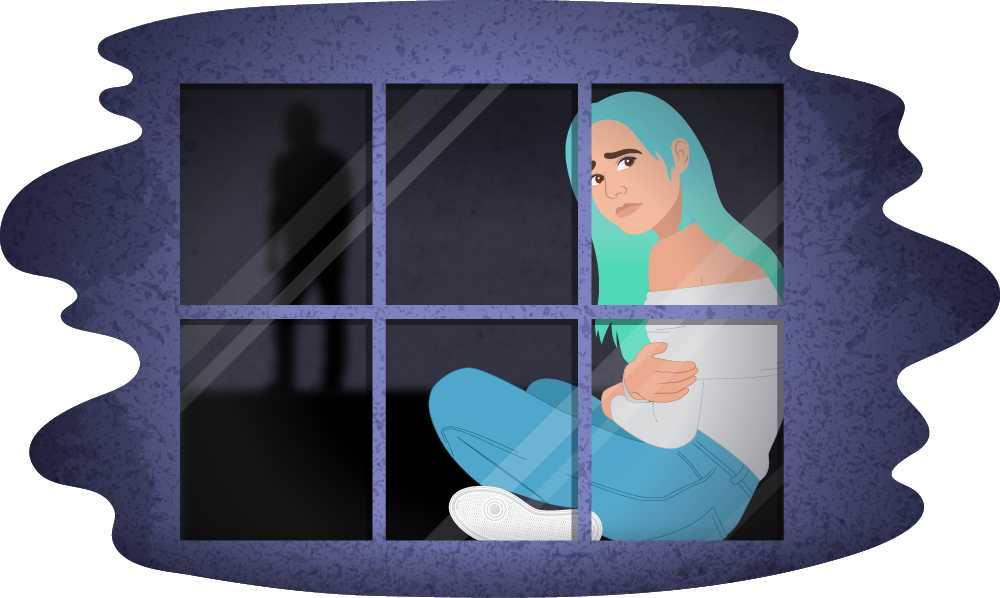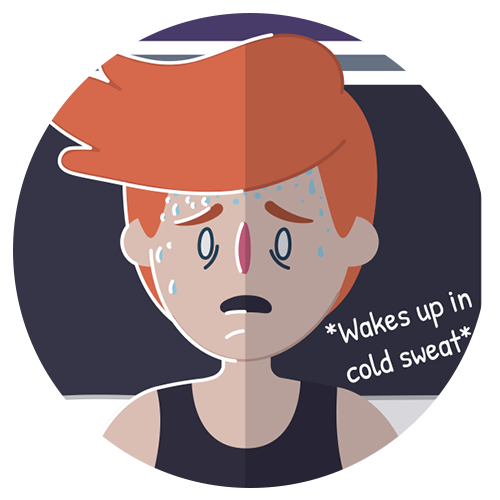Staying safe in an abusive home
You have a right to be safe. In an unsafe environment like ...
READ MEYou might learn (or suspect) a friend is experiencing family violence and not know how to support them. Here are some things that can help.
Content Warning: this article contains violence and trauma related content that may be triggering or distressing.

Family violence refers to violence, abuse and intimidation in families. It’s sometimes referred to by other names, like domestic violence.
It might involve witnessing abuse between adult partners, or experiencing abuse towards family members including children (and even pets).
The types of abuse can include:
Friends often confide in each other about things that are going on in their life. If your friend tells you they are experiencing violence or abuse at home, or you have noticed signs that make you concerned for them, here’s how you can talk about it:
Let them know you are worried
Ask questions, e.g. “What are things like at home?”
Listen and let them talk at their own pace
Let them know you are there for them
Show empathy, e.g. “It must be hard to experience that.”
Don’t push them to say more than they feel ready to
Don’t make them do anything they’re not ready to
Encourage them to seek professional support (you can do this together)
It’s important to tell a trusted adult like a parent, teacher, school counsellor or Kids Helpline what’s been happening.
Sometimes, your friend might already have supports or might be willing to get support themselves, which is really great! You can even help them tell someone they trust by going with them for ‘moral support’.
You can also talk to Kids Helpline confidentially (and anonymously) if you want support around the best ways to support a friend who is experiencing family abuse.
"Friends are often the first to notice that something is not quite right. You might feel torn between keep your friend's secret, but also wanting the abuse to stop. Getting support can help you explore options and make a good choice."
It’s understandable that you might not want to betray their trust, but you’re also really scared for them and don’t know what to do. It’s normal to feel stuck and unsure.
Sometimes, people are often scared that telling someone will mean Child Protection will ‘take them away’ from their family. This fear can help abusers to keep on abusing by keeping young people isolated or stopping them from seeking help.
It’s true that Child Protection might get involved in some cases of family violence. They want to keep families together and aim to work with families to help everyone involved – including abusers.
“Sometimes, being a friend means giving your friend what they need, rather than what they want. It means making their safety the top priority.” - Amanda, Kids Helpline Counsellor
Mental health symptoms, like feeling anxious or depressed can be a normal, natural response to hearing about a friend’s trauma or being concerned for a friend’s safety.
Your wellbeing is important too and it’s important to look after yourself. Here are some things that might help:

Then Quinn opens up about something serious that has been going on at home. He doesn’t know what to do and isn’t sure anyone will believe him.
Child Protection services vary state by state.
Staying safe in an abusive home
You have a right to be safe. In an unsafe environment like ...
READ MEWhat is abuse
Abuse takes many forms and there isn’t one single way that ...
READ MEDomestic violence at home
Violence or abuse at home isn’t ok. Everybody deserves to feel ...
READ MEHow to ask for help
Sometimes we need help but we're not able to ask for it. ...
READ METalking helps! We’re here for you.
No problem is too big or too small.
We're here 24 hours a day, 7 days a week